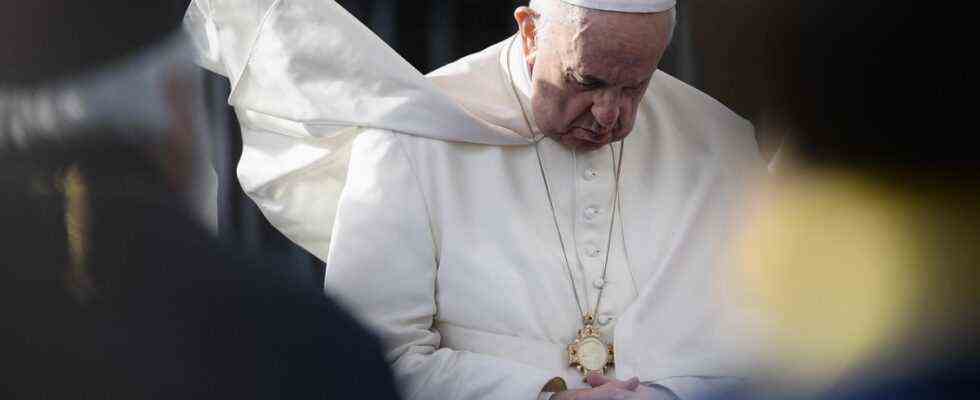Francis is sending his church on a long journey, with stages and stages that it has never seen in its history. The synodal path of the Catholic world church, i.e. the world synod, is supposed to last two years. It begins this Saturday with a workshop in the Synod Hall in the Vatican and on Sunday with a mass of the Pope in St. Peter’s Basilica. Potentially everyone is invited on the long way: 4,000 dioceses with 1.3 billion believers.
Synods, advisory assemblies, have existed since 1965, as synods of bishops, at which the Pope takes advice from selected bishops. Francis is now reinventing it: this time clergy and laypeople are taking part, and the deliberation should span the whole world. In the first phase, which lasts six months and starts in a week, the local churches will discuss in their respective home countries.
After the local consultations, the findings from all dioceses are collected, summarized and passed on to the next higher level. Then there will be discussions at the continental level, also for six months. The synod secretariat then derives a working paper from all the material that will serve as the basis for the final Synod of Bishops in Rome in October 2023. After this meeting with his bishops, the Pope will formulate an apostolic letter. That can take a few months – and that’s where what’s going on.
It is apparently intentional that the World Synod overlaps and possibly crosses national “projects” that are already running, as the head of the Synod Secretariat, Cardinal Mario Grech from Malta, called them somewhat unhappy. The German “project”, the synodal path that has been trodden there since December 2019, is nevertheless viewed with suspicion in Rome: will one have to capture the Germans who may be a little too pluralistic? One is ready to “network” the national paths, said Grech after all.
The French abuse report was another shock
According to Jorge Mario Bergoglio, this World Synod is not about going into depth on certain topics. Rather, the Pope insists on practicing a new style when being together in the church. It’s more about a new mentality than about new structures. “For a synodal church: community, participation, mission” is the motto.
The preparatory documents that should guide along the way contain only very schematic suggestions for topics. One takes up the discussion on how to deal with abuse scandals that have led to “national projects” in Germany, Ireland and Australia. The church must “become aware of the burden of a culture that is characterized by clericalism,” it says. There are “forms of authority from which various types of abuse can arise”.
The world church does not let go of the issue of sexual abuse. Only last week did a report from France shake people: 216,000 children and young people have been victims of sexual violence by priests and religious since 1950, estimates an independent commission of inquiry. He felt ashamed, said Francis after the publication, “ashamed of the far too long-lasting inability of the Church” to make those affected the center of attention.
Cardinal Seán Patrick O’Malley, president of the Pontifical Commission for the Protection of Minors and Archbishop of Boston, also “humbly asked for forgiveness”. He stated, “We still have a long way to go in combating abuse in our church and in society at large. We will never tire of walking this path.”
“Indeed the Church is not a democracy”
However: a world synod is not a church parliament, stressed Cardinal Grech. In the end, the Pope always decides in his role as absolute monarch. Perhaps some have hopes who are reluctant to do so? “The church is in fact not a democracy, but it is composed of an episcopate, with the Pope at the head,” said the chairman of the German Bishops’ Conference, Bishop Georg Bätzing, the Bavarian Broadcasting Corporation. On the one hand.
On the other hand, Bätzing pleads for “much more democratic processes”. That is entirely compatible with the hierarchical structure of the church. “It doesn’t do any harm! It can only be of use to involve a large number of people, believers of all levels and of all nationalities,” Bätzing appeals to understanding. He is probably thinking of the frightening French abuse report when he also says: “Anyone who still says that the Church has no systemic problem is blind.”

